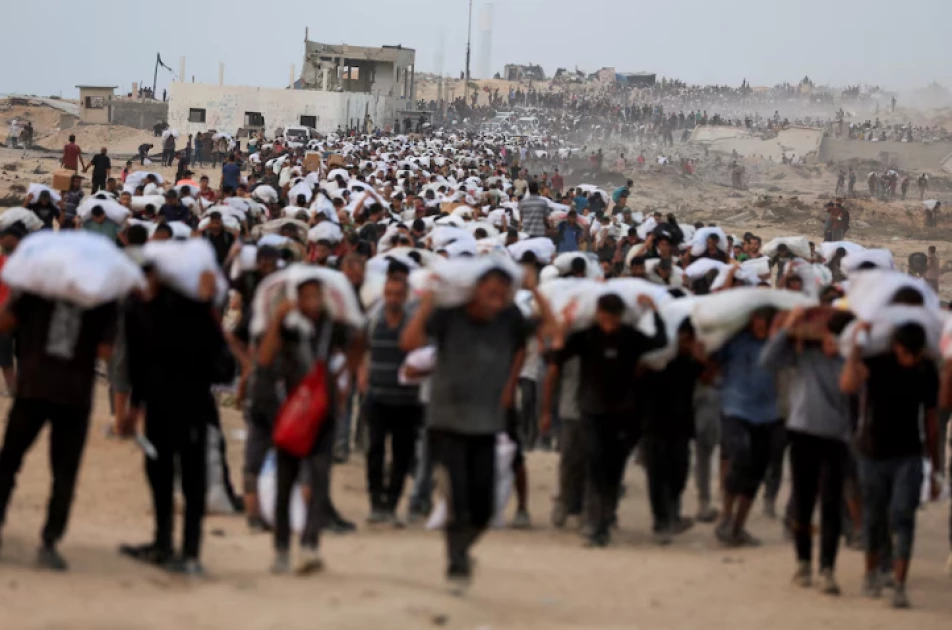Canada will formally recognize the State of Palestine at the United Nations General Assembly in September, Prime Minister Mark Carney announced Wednesday, in a move expected to escalate diplomatic pressure on Israel and deepen divisions among its allies.
Carney said the decision was informed by the worsening humanitarian situation in Gaza and increasing frustration over Israel’s actions in the enclave, particularly restrictions on food and aid.
“Canada condemns the fact that the Israeli government has allowed a catastrophe to unfold in Gaza,” he said. “The prospect of a Palestinian state is literally receding before our eyes.”
The recognition plan aligns Canada with France and Britain, who have both signaled support for statehood if the ongoing war in Gaza does not end. Britain has already said it would back Palestine’s status at the UN meeting unless fighting ceases by then.
Carney noted that the Palestinian Authority had offered assurances of reform, including plans to hold general elections in 2026 that exclude Hamas.
The Canadian announcement follows warnings by global hunger monitors that famine is looming in Gaza. The Gaza health ministry on Wednesday reported seven new deaths linked to hunger, including a two-year-old girl with a pre-existing condition.
The Hamas-run media office added that at least 50 people were killed within three hours as Israeli forces opened fire on crowds attempting to collect food from UN aid trucks in northern Gaza.
Reactions from Israel and its key ally, the United States, were swift and critical. The Israeli foreign ministry said the shift in Canada's stance amounted to “a reward for Hamas” and would weaken efforts to reach a ceasefire or secure the release of hostages. Israeli Prime Minister Benjamin Netanyahu echoed this position, as he did when France and Britain made similar declarations.
A U.S. official, who spoke on condition of anonymity, said President Donald Trump believes recognition of Palestine under current circumstances wrongly “rewards Hamas.” Special envoy Steve Witkoff is expected in Israel on Thursday to discuss Gaza, and Trump has called for more feeding centers in the territory.
Palestine has held the status of a non-member observer state at the UN since 2012 and is currently recognized by more than three-quarters of the assembly’s 193 member countries.
Jonathan Panikoff, a former U.S. intelligence official, said the announcements were intended to apply diplomatic pressure on Israel to return to the two-state solution. However, he warned that Canada's move may end up being more symbolic than practical, and could damage its ties with Israel.
French President Emmanuel Macron, who spoke with Carney ahead of the announcement, said the decision is meant to revive hope for peace in the region.
Meanwhile, some Israeli leaders are threatening countermeasures. Cabinet member Zeev Elkin floated the idea of annexing parts of Gaza to block Palestinian statehood ambitions. This comes as international talks aimed at securing a 60-day ceasefire and the release of remaining Israeli hostages stalled last week.
In Gaza, residents welcomed the recognition. “Palestinians have lived for more than 70 years under killing, destruction and occupation, while the world watches in silence,” said Saed al-Akhras.
But families of Israeli hostages still held in Gaza objected, urging foreign governments to hold off on recognition until the captives are returned.
“Such recognition is not a step toward peace but rather a clear violation of international law and a dangerous moral and political failure that legitimizes horrific war crimes,” said the Hostages Family Forum.
Netanyahu has insisted that any future Palestinian state would pose a security threat, and his cabinet—which includes far-right voices—has opposed any concessions. Finance Minister Bezalel Smotrich said reestablishing Jewish settlements in Gaza was now “closer than ever,” declaring the territory “an inseparable part of the Land of Israel.”
The humanitarian toll continues to rise. A father in Deir Al-Balah told Reuters his two-year-old daughter, who was being treated for fluid build-up in her brain, died from starvation because the required medical milk was unavailable.
“Doctors said the baby has to be fed a certain type of milk,” said Salah al-Gharably. “But there is no milk. She starved. We stood helpless.”
According to the Gaza health ministry, at least 154 people—most of them children—have died from hunger or malnutrition since the war began, with the majority of those deaths reported in recent weeks.
Israel said it would pause military operations for 10 hours daily in some parts of Gaza to allow aid trucks to pass. The UN said more food has been delivered during these pauses, but warned the amount is still not enough to meet the growing needs.
The war started on October 7, 2023, when Hamas-led fighters attacked Israeli communities and military bases, killing around 1,200 people and taking 251 hostages. In response, Israel launched a large-scale offensive in Gaza, which the health ministry there says has killed more than 60,000 people and devastated much of the territory.

